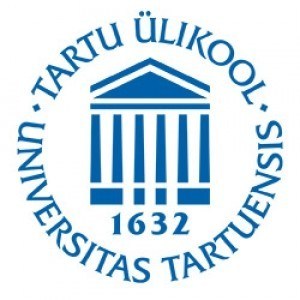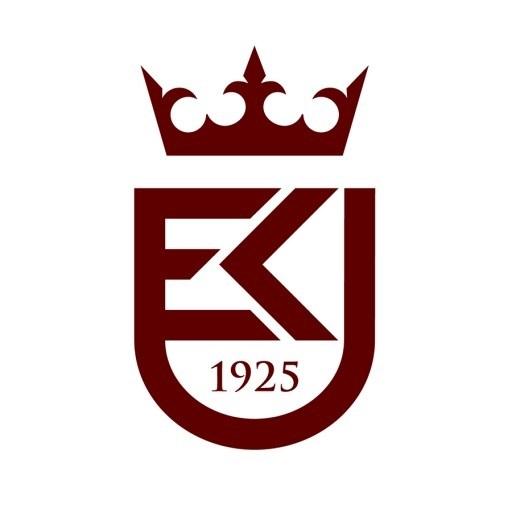European Radioecology is a specialized master's degree program offered by the Norwegian University of Life Sciences, focusing on the scientific principles and practical applications related to the behavior and impact of radioactive substances in the environment. This program provides students with advanced knowledge of radiological processes, environmental monitoring, radioprotection, and the assessment of radioactive contamination in various ecosystems. Through a combination of theoretical coursework and practical training, students learn to evaluate radiation risks, develop remediation strategies, and contribute to radiation safety standards in diverse environmental contexts. The curriculum covers topics such as environmental radioactivity, radiological bioaccumulation, ecological effects of radiation, and the management of radioactive waste. Students also gain skills in scientific research, data analysis, and the use of modern modeling tools to predict the movement and effects of radioactive substances in the environment. The program is designed for students with backgrounds in environmental science, biology, physics, or related disciplines who are seeking to advance their careers in environmental protection, nuclear safety, and radiation research. Graduates of the European Radioecology program will be well-equipped to work in international organizations, government agencies, research institutions, and industry sectors focused on environmental safety and radiation management. The program emphasizes sustainable practices and the importance of balancing technological development with ecological and public health considerations. By the end of the degree, students will have developed a comprehensive understanding of radioecological concepts, research methodologies, and policy frameworks necessary to address contemporary challenges associated with radioactive contaminants in the environment.
European Radioecology is a specialized master's degree program offered by the Norwegian University of Life Sciences, designed to provide students with comprehensive knowledge and practical skills related to the environmental behavior and management of radioactive substances. The program aims to prepare students for careers in environmental protection, nuclear safety, ecological research, and radiation risk assessment, with a focus on radioecological processes and their impact on ecosystems and human health. Throughout the program, students will explore the fundamental principles of radiochemistry, radioisotope behavior in different environmental media, and the methods used to measure and model radioactivity levels in complex ecological systems. The curriculum integrates multidisciplinary approaches, combining physics, chemistry, biology, and environmental science, to give students a holistic understanding of how radioactive materials interact with natural environments. Students will also study regulations and policies pertaining to nuclear safety and environmental protection, enabling them to assess and manage radiation risks effectively. Practical laboratory work, field studies, and research projects are integral parts of the program, providing hands-on experience with advanced instrumentation, sampling techniques, and data analysis. Emphasis is placed on developing critical thinking and problem-solving skills needed to address contemporary challenges in radioecology, such as the aftermath of nuclear accidents and the management of radioactive waste. Graduates from the program will be qualified to work in ecological consultancy, governmental agencies, research organizations, and international institutions involved in nuclear safety and environmental monitoring. The program is taught in English and attracts students from across Europe and beyond, fostering an international learning environment that encourages collaboration and exchange of ideas. With a focus on sustainable practices and responsible management of radioactive substances, European Radioecology aims to contribute to the global efforts in ensuring environmental safety and human well-being in contexts affected by nuclear activities.
The financing of the European Radioecology Master’s program at the Norwegian University of Life Sciences is primarily supported through a combination of national and European funding sources, scholarships, and university-specific financial aid options. As a program offered within Norway, students benefit from the country's comprehensive higher education funding framework, which includes government subsidies that help keep tuition fees relatively low or free for domestic students. For international students, tuition fees may apply, and there are scholarship opportunities available to offset these costs. The Norwegian government and the university itself provide various scholarships, grants, and financial support aimed at attracting high-caliber students from across Europe and beyond.
Students can also explore external funding options such as Erasmus+ scholarships, which promote student mobility within European countries, covering part of the tuition fees, travel expenses, and living costs. The university actively participates in this program, giving students the opportunity to receive financial support while studying abroad or participating in exchange programs related to European Radioecology. Additionally, the university offers research assistantships and teaching assistantships, which provide stipends to students engaged in research projects related to radioecology and environmental safety. These positions not only offer financial support but also valuable academic and professional experience, contributing to the students’ overall educational journey.
Furthermore, students may find funding opportunities through national research councils or environmental agencies interested in nuclear safety, radioactive waste management, and environmental radioactivity research. These organizations sometimes collaborate with the university by funding specific research projects, internships, or study grants that benefit students enrolled in related fields.
Partnerships with industry stakeholders, scientific institutions, and governmental agencies often facilitate access to project-based funding, allowing students to participate in real-world research while earning a stipend. International organizations, such as the European Atomic Energy Community (Euratom), also provide funding opportunities for research and education in nuclear safety and radioecology, which students can leverage to support their education.
Overall, the financing of the European Radioecology program at the Norwegian University of Life Sciences is multifaceted, involving institutional support, governmental and European grants, and opportunities for research funding and scholarships aimed at reducing the financial barriers for students and fostering a diverse, highly qualified student body dedicated to environmental radioactivity and safety research.
European Radioecology at the Norwegian University of Life Sciences offers a comprehensive exploration of the environmental and ecological impacts of radioactive substances within European landscapes. This interdisciplinary programme combines principles from ecology, radioactivity, environmental science, and risk assessment to equip students with the knowledge and skills necessary to address complex issues related to radioactive contamination and its effects on ecosystems. Students will study the sources and behavior of radioactive materials, their pathways through various environmental matrices, and their long-term implications for biodiversity and human health. The curriculum emphasizes both theoretical understanding and practical applications, including field sampling, laboratory analyses, and modeling techniques to predict radionuclide dispersion and accumulation. Throughout the programme, students engage with current research topics, including the management of radioactive waste, decommissioning of nuclear facilities, and strategies for environmental remediation. An important aspect of the education is understanding regulatory frameworks and safety protocols applicable within European contexts, ensuring graduates can contribute effectively to policy-making and environmental management strategies. The programme is designed to foster critical thinking and problem-solving skills, preparing graduates for careers in environmental consultancy, governmental agencies, research institutions, or international organizations focused on nuclear safety and environmental protection. The university’s state-of-the-art laboratories, collaborative research environment, and access to European research networks provide students with valuable resources and professional networking opportunities. Overall, the European Radioecology programme aims to develop experts capable of assessing and mitigating the ecological risks associated with radioactive substances, ultimately contributing to safer environmental practices across Europe.








